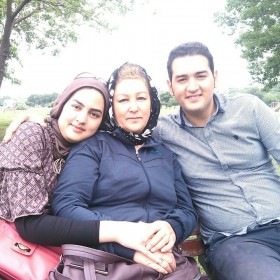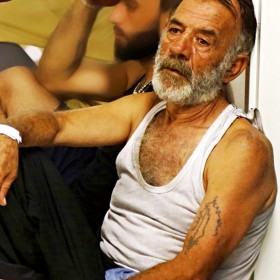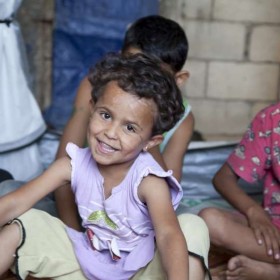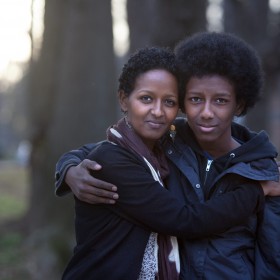Story of Dala Banu, a Rohingya refugee
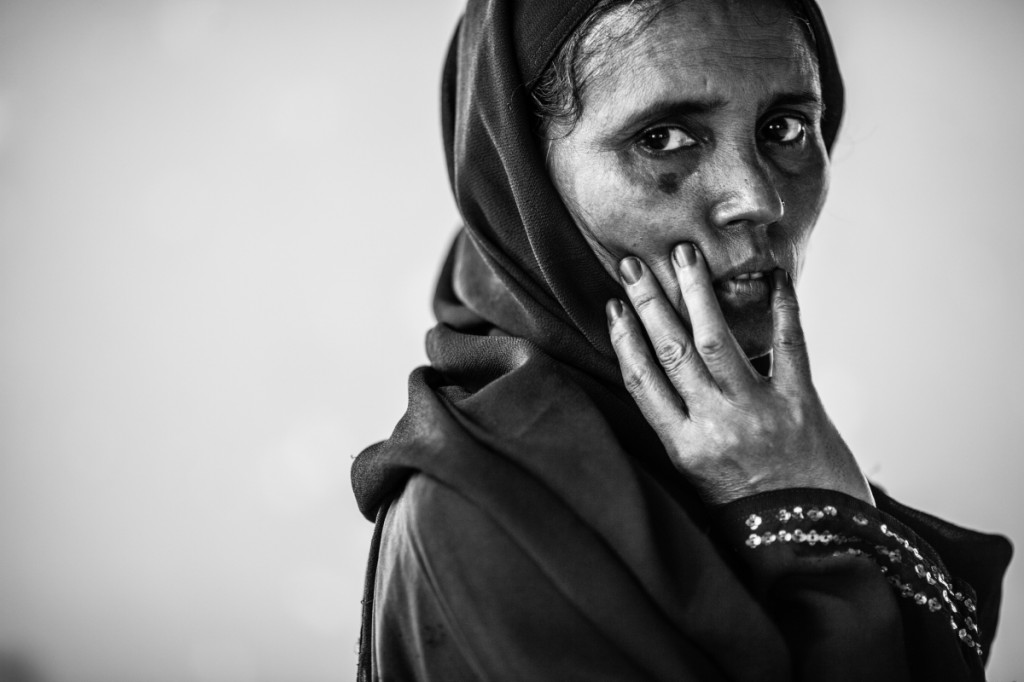
Portrait of Dala by Marcin Zaborowski
This is the story of Dala Banu, a Rohingya refugee from Burma, now at a camp in Bangladesh
During the interview, Dala stays silent. Her husband Mohammed speaks out for both of them. He talks about the pleasant life they had in Burma; they owned a farm, five cows, three bulls and a herd of goats. However, Mohammed was forced by the army to work in slave-like conditions as a carrier, without food or water, while the neglected farm fell into ruins right in front of their own eyes. Suddenly, their cows and goats started disappearing; people were calling them intruders from Bangladesh and saying they are not Burmese.
The problem is that Mohammed does not recall when they arrived to Burma. He lived in the same village as his father, his grandfather and the grandfather of his grandfather. They were always there.
Dala remains silent when Mohammed describes how they fled across the border, spent three days forcing their way through the jungle and how the Bangladeshi border guards did not have the heart to stop them. They looked so horrible. That was 21 years ago.
When Mohammed starts talking about their daughter, his voice falters, and it is Dala who finds the strength to finish the story. When Dala’s daughter was 23, she was raped at a refugee camp. The tragedy became her ticket to the West and the daughter was transferred to Canada. This happened five years ago. Their daughter calls Dala regularly, but brings bad news. She finds it difficult to live in the new country and has a hard time finding a job. She stayed for some time with one Muslim family, but they were having problems as well and she had to leave.
Dala is worried about her daughter, but believes that as soon as they meet in Canada everything will be all right. However, travelling to the West is not that easy for them. They have five more children here and have spent half of their lives at a refugee camp in Kutupalong.
Dala and Mohammed sometimes imagine that there is no cruel army stationing in Burma and there are no dreadful neighbours who cannot accept that they practice a different religion. They picture themselves living in their village, taking care of the farm; there is no refugee camp in Bangladesh and their daughter is not staying far away in Canada, but lives with them.
Text: Paweł Skawiński, Polish Press Agency (edited by Rafał Kostrzyński, UNHCR Poland)



